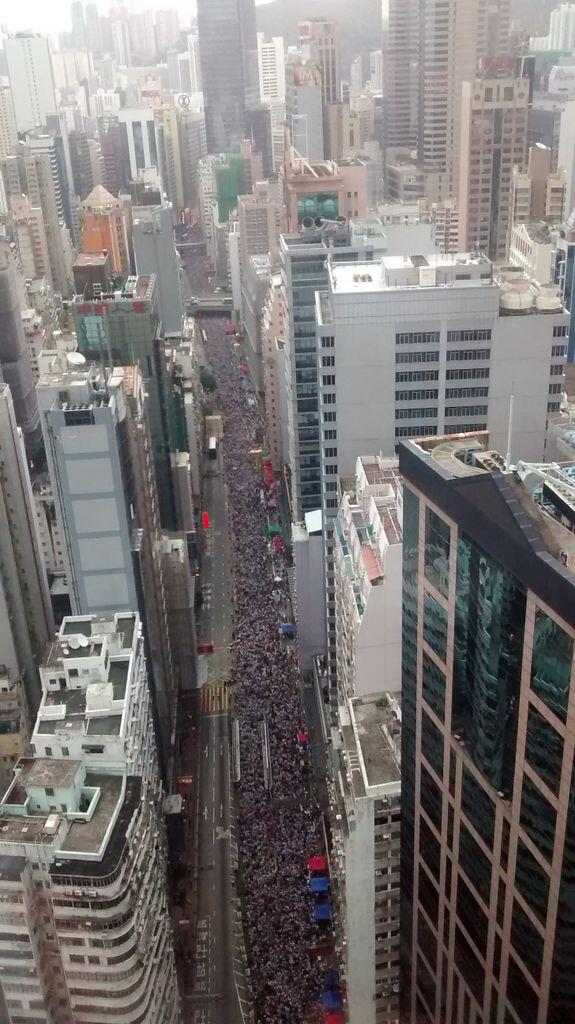
July 1st is a special day in Hong Kong, a day of celebration according to the Government, to commemorate the handover of the island back to Mainland China in 1997. But, for many, it's also a day of protest, and over half a million people turned out Tuesday to challenge Beijing's control of the city.
According to the New York Times, the protest were large, but mostly peaceful, with only about 500 reported arrest for obstruction and unlawful assembly. A small number, given the rivers of people that channeled through the corridors of skyscrapers in Asia's biggest financial center. City officials estimate that over 500,000 people protested, with around 100,000 on the streets at any given time. They believe it tops the mark set in 2003, when close to 500,000 hit the streets.
According to the agreement between China and England, Hong Kong was suppose to eventually become democratic after the handover in 1997, but Beijing has maintained tight control over the island instead.
To this day, the city's chief executives - the top leadership post in Hong Kong - have been chosen by a largely pro-Beijing, pro-communist committee. This group is responsible for choosing Hong Kong's current leader, CY Leung.
A 10-day, unofficial referendum organized by activists ended Sunday, and was a great success for local opposition groups. With nearly 800,000 votes, the referendum was successful, even beyond the organizers hopes. China's communist leaders have said in the past that it will allow Hong Kong's residents to vote for the chief executive beginning in 2017, but in a "white paper" issued last month, Communist Chinese leaders made it clear that Beijing would control the city, and allow only who they deemed to be "Chinese Patriots" to govern.
Shouting slogans in Cantonese such as "change comes from the people," and carrying signs reading, "Say No to Communist China", the demonstrators faced-off with police, and showed their determination to see real change, even in the face of rain showers that blanketed the city for part of the day.

According to PBS Newshour, Lee Cheuk-Yaun, a Member of the Legislative Council of Hong Kong, called on the people to stand up for their rights.
"We must fight to protect our system and also make it into a fairer society," he yelled to cheering crowds.
Kennie Chan, another protestor, said he came out because he doesn't expect Beijing to ever treat Hong Kong fairly, and follow through on its promise of democracy.
"It's obvious China cannot stand the people of Hong Kong, but we are not going to be obedient anymore. We are going to resist," he said.
The Hong Kong government issued a statement late Tuesday saying it would take the desires of the protesters into account as it considers ways to introduce universal suffrage. Although the statement reaffirmed the government's position that a nominating committee should control who will appear on the ballot for the 2017 election.
The protesters have called for "civil nomination," arguing that the public should be allowed to propose candidates who would automatically be approved by the nominating committee.
Protest organizers made it known that Tuesday's march was a small rehearsal for what would come, if the government balked on letting the people decide who was on the ballot.

Occupy Central With Love and Peace, a pro-democracy group that participated in the march, has been threatening to fill the streets of downtown Hong Kong later this year and engage in a campaign of civil disobedience if the people don't get their way.
"If the government refused to seriously consider the demand, this group of people, more of them will change from sympathetic to active support, and the sympathetic people may also start all kinds of non-cooperative actions," Benny Tai, the leader of Occupy Central told the NY Times. "And just think about, how can a government govern if the whole society refuses to cooperate with you?"
Time lapse video of the protest in Victoria Park:














